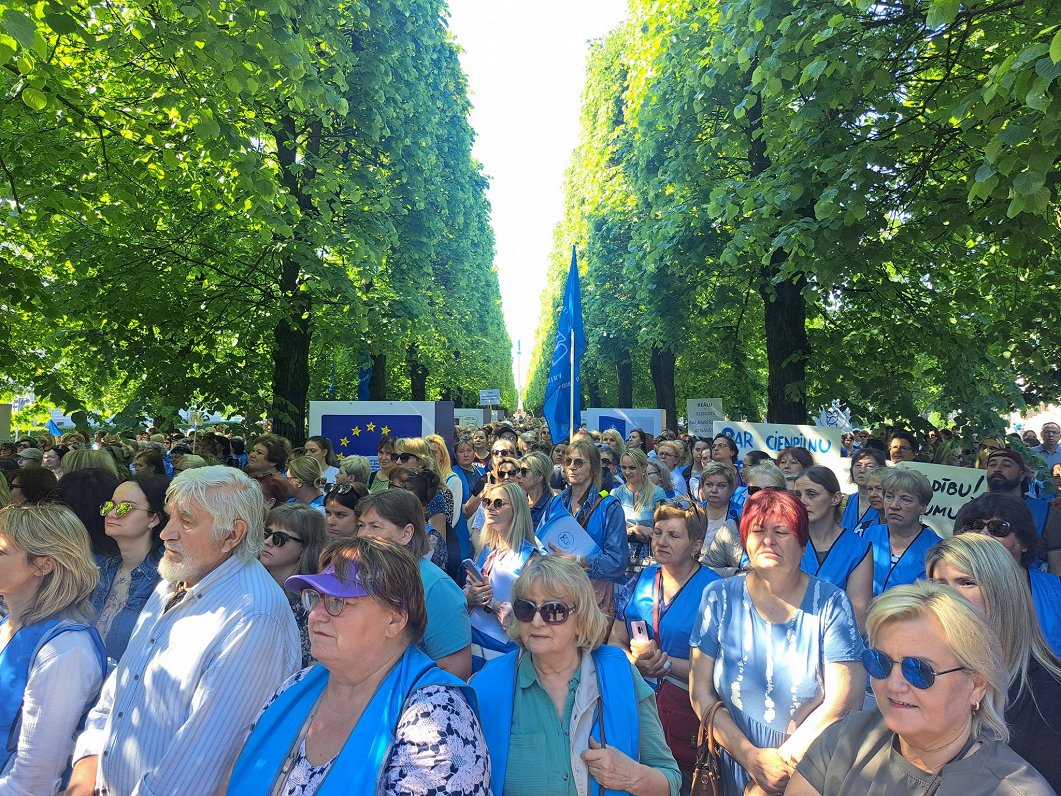The Ministry of Education and Science (IZM) has made a proposal to balance teachers' workloads, calling on all teachers to switch to a 40-hour working week from September 1, 2025, with an additional cap on the number of contact hours in the classroom. But the trade union is not satisfied with the ministry's offer.
Inga Vanaga, the head of LIZDA, said on Latvian Television's "Morning panorama" program that the Ministry of Education's offer on load balancing is "opposite" to what LIZDA and the Ministry have been arguing about for the past year.
The LIZDA leader said that at Tuesday's picket the teachers will demand that the Ministry of Education and the government continue to balance the workloads of all teachers, as the parties allegedly agreed last year. "[We will ask] politicians to be responsible for what they promised last year," Vanaga added.
Addressing the picketers outside the Cabinet of Ministers, Prime Minister Evika Siliņa said, "All the promises that we as a government and previous governments have made about raising the minimum tariff, we have kept, and I think that you have no reason to be worried now that the government is not willing to keep something that has been promised in the past. [..]"
"Dear teachers, do you know what you have come here to argue about? What? Were your salaries not increased by the government? Who didn't get [a salary increase], a raise of the hand! I don't see a hand! The government has delivered on everything we promised. Please!" Siliņa said.
LIZDA said that without being invited to the negotiating table on Tuesday and without a concrete action plan on load balancing, the 40-strong union council has gone inside the Cabinet building without an invitation from the politicians, demanding that the demands of the teachers be taken into account.
The LIZDA did not predict the future scenario of this action, pointing out that the trade union representatives are staying in the lobby of the government building.
This is the biggest protest action by teachers since April 24 last year, when around 8,000 teachers marched in protest. At that time, the Minister of Industry Čakša and the then Prime Minister Krišjānis Kariņš (New Unity) guaranteed €89 million extra for teachers' salaries, and a timetable was drawn up for how this money would gradually reach their wallets. But all year long, the discontent of the sector's trade unions that the strike agreement was not being implemented as promised and that the Ministry was manipulating the calculations has not subsided.






























